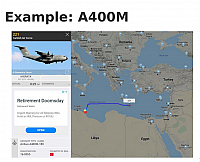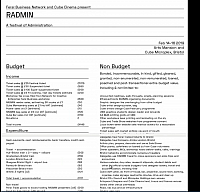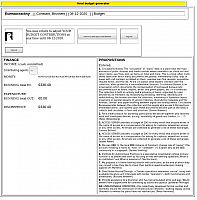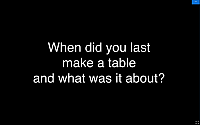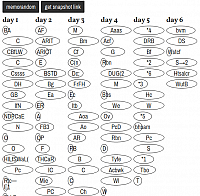Bureaucracksie documentation
The term combines the French word – desk or office – and the Greek word κράτος (kratos) – rule or political power – with the Old English cracian – to make an explosive noise.
The work session Bureaucracksy brought together artivist practices around the imaginative re-appropriations of rules and regulations. Bureaucracksy took place between 7 and 12 December 2020. This work-session investigated the governance of techno-social systems through the prism of bureaucracy. The execution of rules is an essential element of computation, of digital infrastructures, and of the societies that they operate with. Critical practices of listing, naming, filtering, tool making, care and sharing require that some books are kept. Initiatives around Free/libre, Open Source software for example insist on producing transparent procedures and thereby contribute to the creation of commoning structures, collective resources and addressing the Conducts of Code. This session was held online and in a distributed manner. Although the session was supposed to take place in Hacktiris, the shared workplace that Constant and many other artists and cultural organisations use in the center of Brussels, this turned out to be impossible due to the still very present anti Covid19 measures.
Invitation
Articles on Constant website
Open Call
Input Moments
The first days were used to collectively exchange and work with a set of Input moments. These moments nourished reflection on how paperwork can generate beneficis from several perspectives.
- Kate Rich brought the workshop Feral budget Generator
The Feral budget generator spins projects into existence. This is a one hour multi participant workshop in the exciting work (RADMIN) of collectively creating and spending a budget. - Sarrita Hunn discussed the P2Panda protocol Starting with Liebe Chaos Verein’s development of the peer-to-peer protocol »p2panda« as a case study, we brainstormed collectively new metaphorical frameworks within which to designate the organisation of events, places and resources that can be shared equally among all participants in a network.
- Francis Hunger proposed a lecture on the history of tables Hunger talk about historical table practices. With that he introduced the notion of In-Formation, a concept to be added to “data” and “algorithm”. At the beginning of the session, he asked us about our table practices: When did you last make a table and what was it about?
Full presentation: https://bbb.constantvzw.org/playback/presentation/2.0/playback.html?meetingId=7e6b3919d077c8a932e5d54848f12201f58efc0f-1607501332472 - shared a collective writing session.
- Hans Lammerant presented his counter-bureaucratic peace work.
Bureaucratic practices enable the state or large corporations to observe and act. Through documents and data they can track goods and people, and monitor all sorts of activities. Reason enough for kafkaian fears and suspicions. But nowadays a lot of these administrative traces and open(ed) data becomes available to everyone, turning the world into a large administrative database. This can be used to develop new forms of human rights and conflict monitoring and to create feedback into the political and legal system with independent counter-bureaucracies. I will present how such counter-bureaucratic research can be done with an example concerning arms trade.
Full presentation : https://bbb.constantvzw.org/playback/presentation/2.0/playback.html?meetingId=7e6b3919d077c8a932e5d54848f12201f58efc0f-1607325585230 - Gloria Gonzalez Fuster and Jolien Ghyselinck helped deconstructing the figure of Data Protection Officer. This was done with the help of an ABBA playlist.
- ABBA DPO playlist slides: https://video.constantvzw.org/Bureaucracksy/APD_GBA_DPO_practice_10122020_V.pdf
- Introducing the DPO slides: https://video.constantvzw.org/Bureaucracksy/DPO%20ggf%20final.pdf
- Rares Craiut shared 4 daily video’s named Four European TV dinners.
The “European TV dinners” pair for consumption two different crisis timelines: 1980’s socialist Cluj-Napoca Romania, and 2020’s capitalist Belgium Brussels. Both timelines are “bureaucracy” infused and they limit the way we consume food or performance, among others. Each film is associated with a food group menu, food groups that usually do something to us: fat, carbohydrates, protein, and lastly alcohol. You are not directed as to how specifically you should consume the series. Each episode is intended as an individual TV dinner experience. One possible suggestion though, would be to pay attention to the Time component. Time is the shared ingredient between bureaucracy, performance, cooking and film. Adding time (by slowing the movie to the duration of your meal, playing the film on a loop until you finish eating, running the movie with multiple play-pauses etc.) can make the difference between the frustration of fast-food type feeding and the comfort that comes with finding your own absorption rhythm.
Video’s are here: https://video.constantvzw.org/bureaucracksy/
Recipe texts are here: https://video.constantvzw.org/Bureaucracksy/TV_Dinners_Subtitles
TV guide: https://video.constantvzw.org/Bureaucracksy/Tv_Dinners_Subtitles/TV_guide.pdf - In the evening hours participants could listen to late night podcasts in the series Ready to Commit offered by Peter Hermans. This experimental audio-essay contemplates, in multiple episodes, the performative role of voices — natural, synthetic, instructive, scripted, (un)clear, hesitant, conflicting — in travelling across landscapes of bureaucracy. In the cracks and folds of the sheets, editing histories and binder-pillows, all realities are real. A new episode was put online for asynchronous listening every day during the workshop at 22:00.
INTRO
Intro script
EPISODE 1
Episode 1 script
EPISODE 2
Episode 2 script
EPISODE 3
Episode 3 script
EPISODE 4
Episode 4 script
Participants
An Mertens, Brendan Howell, Caterina M, Dia Hamed, Elodie Mugrefya, Manufactura Independente (Ana Isabel Carvalho + Ricardo Lafuente), Donatella Portoghese, Eric Snodgrass, Federico Pozzoni, Femke Snelting, Francis Hunger, Hans Lammerant, Jonathan McHugh, Kate Rich, Loup Cellard, Lucia Palladino, Meltionary (Loren Britton + Isabel Paehr), Muslin Bros (Tamar Levit + Yaen Levi), Office for Joint Administrative Intelligence (Chris Dreier + Gary Farrelly), Peter Hermans, Peter Westenberg, Rares Craiut, Richard Wheeler, Sarrita Hunn, Simon Browne, Wendy Van Wynsberghe.
Programme
- Description of programme and inputs: https://pad.constantvzw.org/p/Bureaucracksy-programme
Memoreads
Participants Manufactura Independente made a system that walked through the daily activities that had taken place and fed an edited memory back to the worksession participants. presents snippets, scraps and fragments in a poetic ‘derive’.
- https://memoreads.koizo.org/ Public version: names taken out, some links disabled.
- https://memoreads.koizo.org/ Private version. This is the complete version. Password protected. If you need access send us an email.
Bureaucracksicon
The is at the same time a Bureaucracktic lexicon, a list of words that are relevant to the worksession, and a reader, listing texts and mediafiles about the topic.
- Bureaucracksicon: https://pad.constantvzw.org/p/bureaucracksy-lexicon
Workwiki
- The wiki that was used to organise the week is here: https://bureaucracksy.constantvzw.org/w/Main_Page/
Colophon
License (unless otherwise noted): Free Arts License http://artlibre.org/licence/lal/en/






